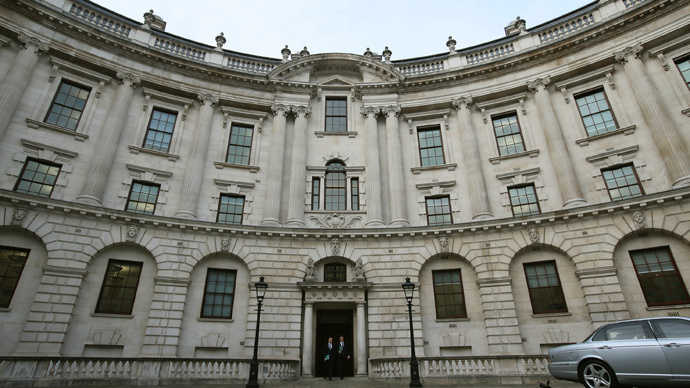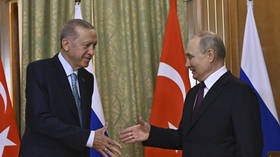UK trips up EU plan to ham string industrial-scale corporate tax avoidance

Britain will not adopt new EU measures to tackle large-scale tax avoidance by multinational companies, the financial secretary to the Treasury has said.
Brussels hopes to implement a longstanding tax harmonization plan to set common rules across member states, thereby closing legal loopholes multinationals currently exploit.
A German member of the European Parliament (MEP) said he was shocked when the Treasury minister responsible for tax policy rebuffed the policy.
READ MORE: Monsanto plans 'corporate inversion' move to UK, wooed by Osborne’s low taxes
David Gauke told MEPs Britain will not adopt measures to introduce common tax rules, instead preferring to entice multinationals to the UK with low tax rates.
German MEP Michael Theurer said: “He was very clear that the UK is insisting on tax competition. It was really a shock from the minister.”
Chancellor George Osborne slashed Britain’s headline tax rate from 28 percent to 20 percent in a bid to woo corporations to the UK.
The Treasury has also established favorable tax regimes for multinationals with offshore subsidiaries and new tax breaks for patent-owning companies.
Several corporations have moved their headquarters to the UK to take advantage of the low tax threshold, including Aon, Fiat Industrial and Starbucks’ European operations.
Agrochemical and seed giant Monsanto last month announced it would move its global headquarters to the UK if it succeeded in merging with Swiss firm Syngenta.
EU tax commissioner Pierre Moscovici intends to resurrect a plan for a so-called common consolidated corporate tax base (CCCTB) after previous attempts failed due to opposition from member states.
READ MORE: UK is 'biggest tax haven in EU,' says global tax expert
Brussels intends to make a common tax rate compulsory for multinational enterprises, according to a document seen by Reuters.
Moscovici’s plan states: “The current rules for corporate taxation no longer fit the modern context, as corporate tax planning has become more sophisticated, and competitive forces between member states have increased, the tools for ensuring fair tax competition within the EU have reached their limits.”
A Treasury spokesperson said: “Direct taxation is a matter for EU countries, and any direct taxation matters require unanimity across all EU countries. We’re fully involved in international discussions on tax issues and have consistently supported global measures, through the EU, G20 and OECD, which will strengthen international rules to prevent corporate tax avoidance.”












